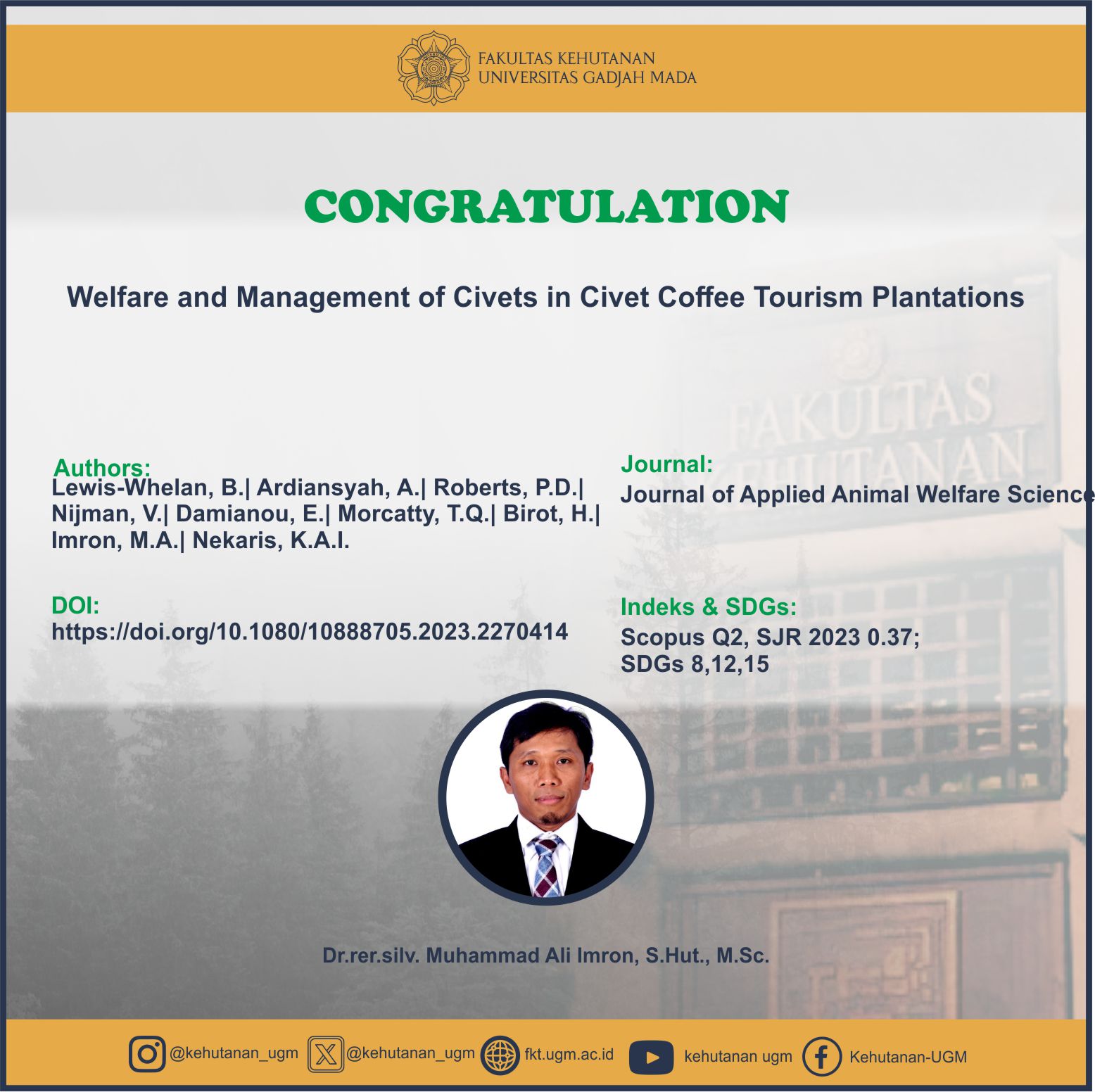
Abstract
Civet coffee is produced with coffee beans that have passed through the digestive tract of civets which are then processed for drinking. Outlets, known as civet coffee tourism plantations are popular tourist attractions in Bali, Indonesia. These outlets keep caged civets for public viewing and sell civet coffee. We assessed civet welfare in 29 civet coffee tourism plantations to assess husbandry factors, the five freedoms and body condition scores. We also assessed civet welfare in eight wildlife markets where civets are sourced for civet coffee tourism and calculated turnover of civets. We found 99 civets in civet coffee tourism plantations and 136 in markets, where. Annually between 400 and 800 civets are sold. Welfare standards do not meet the Indonesian laws and regulations. Diet, hygiene, presence of water and mobility affected body condition scores and no civet met all of the five freedoms. Enforcement of welfare and trade laws is needed to improve civet welfare, and to curb the illegal civet trade. Tourists frequenting civet coffee tourism plantations should be made aware of the low welfare standards to inform their choice about supporting this industry.
SDGs:
SDG 8: Decent Work and Economic Growth
SDG 12: Responsible Consumption and Production
SDG 15: Life on Land
Link Dokumen:
Download
